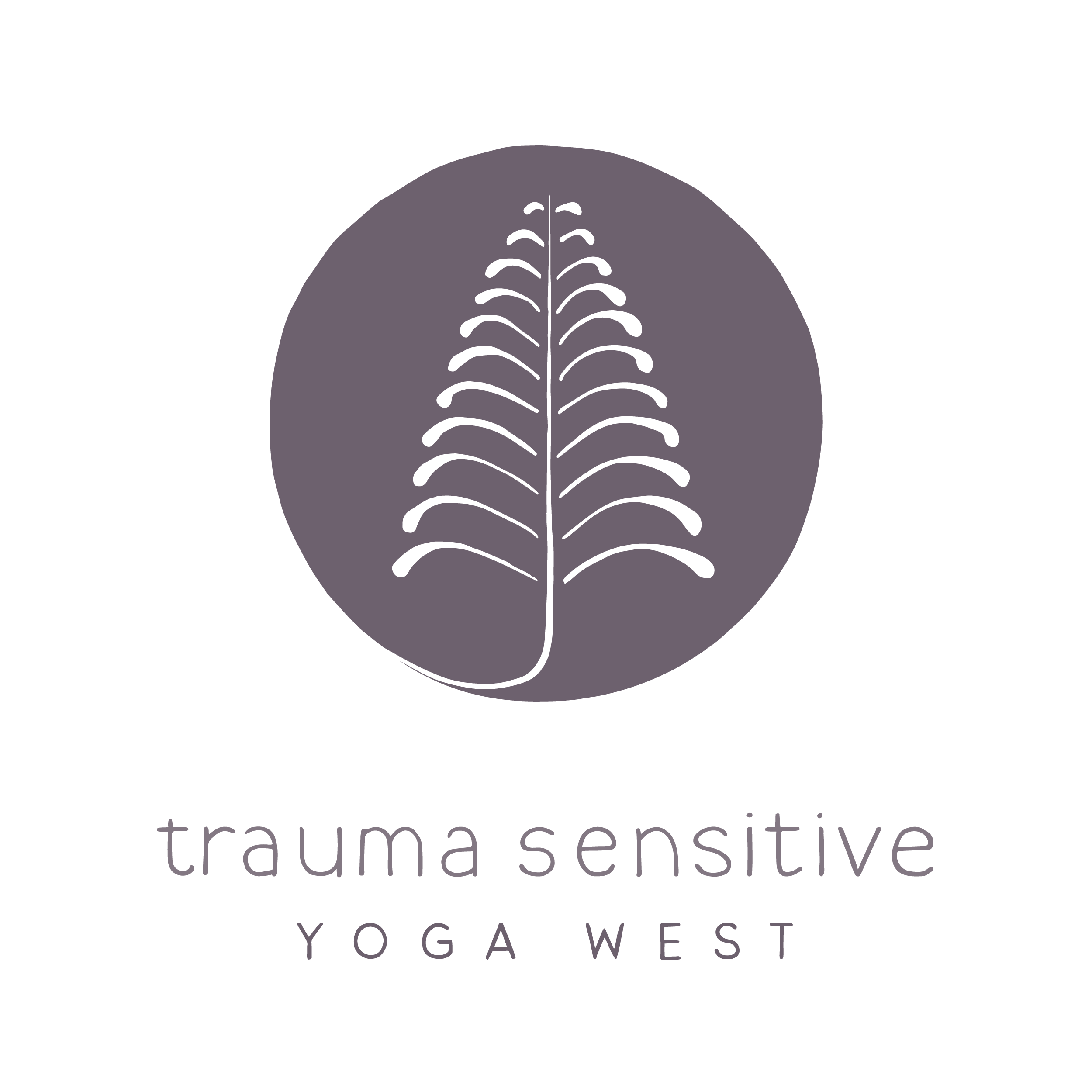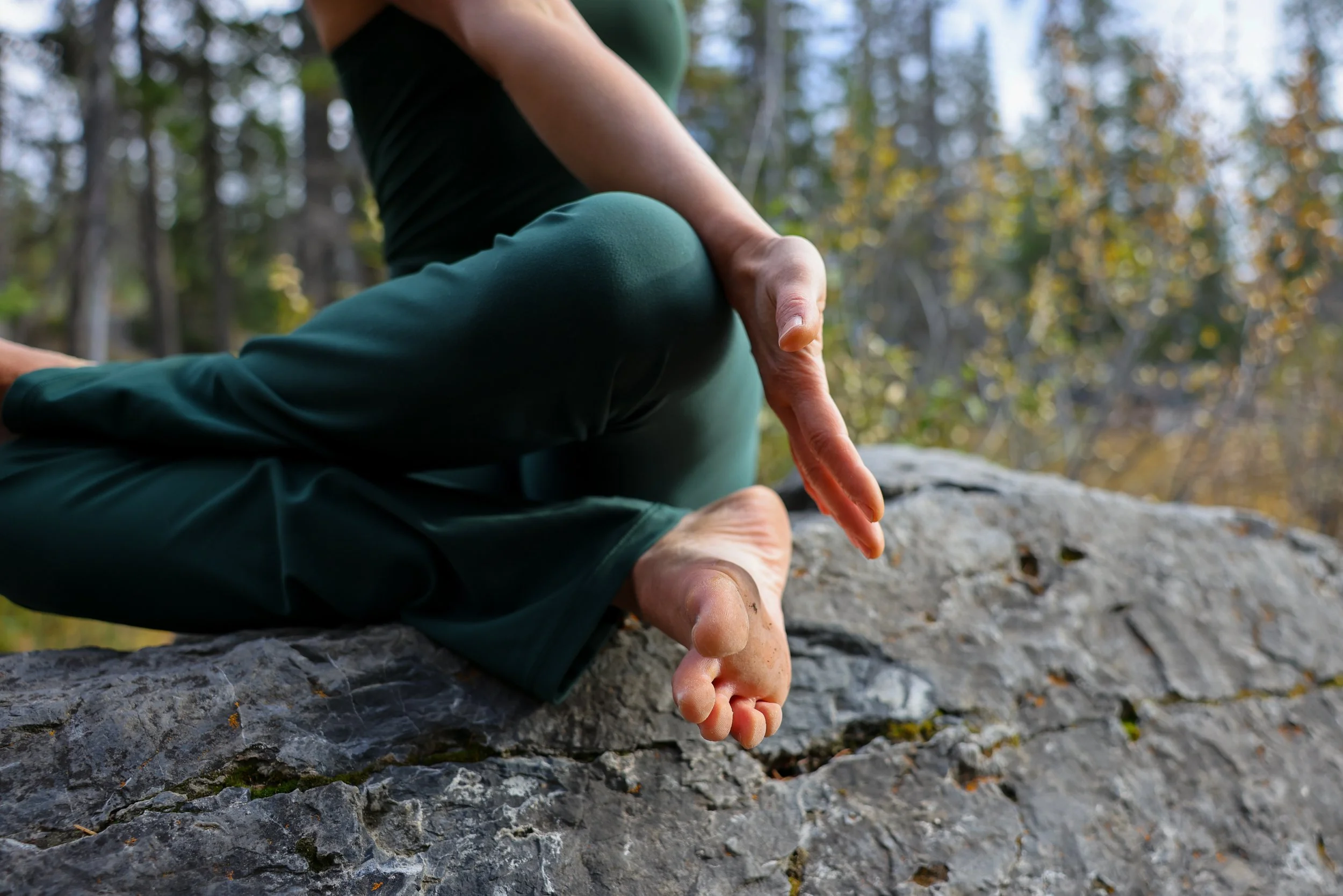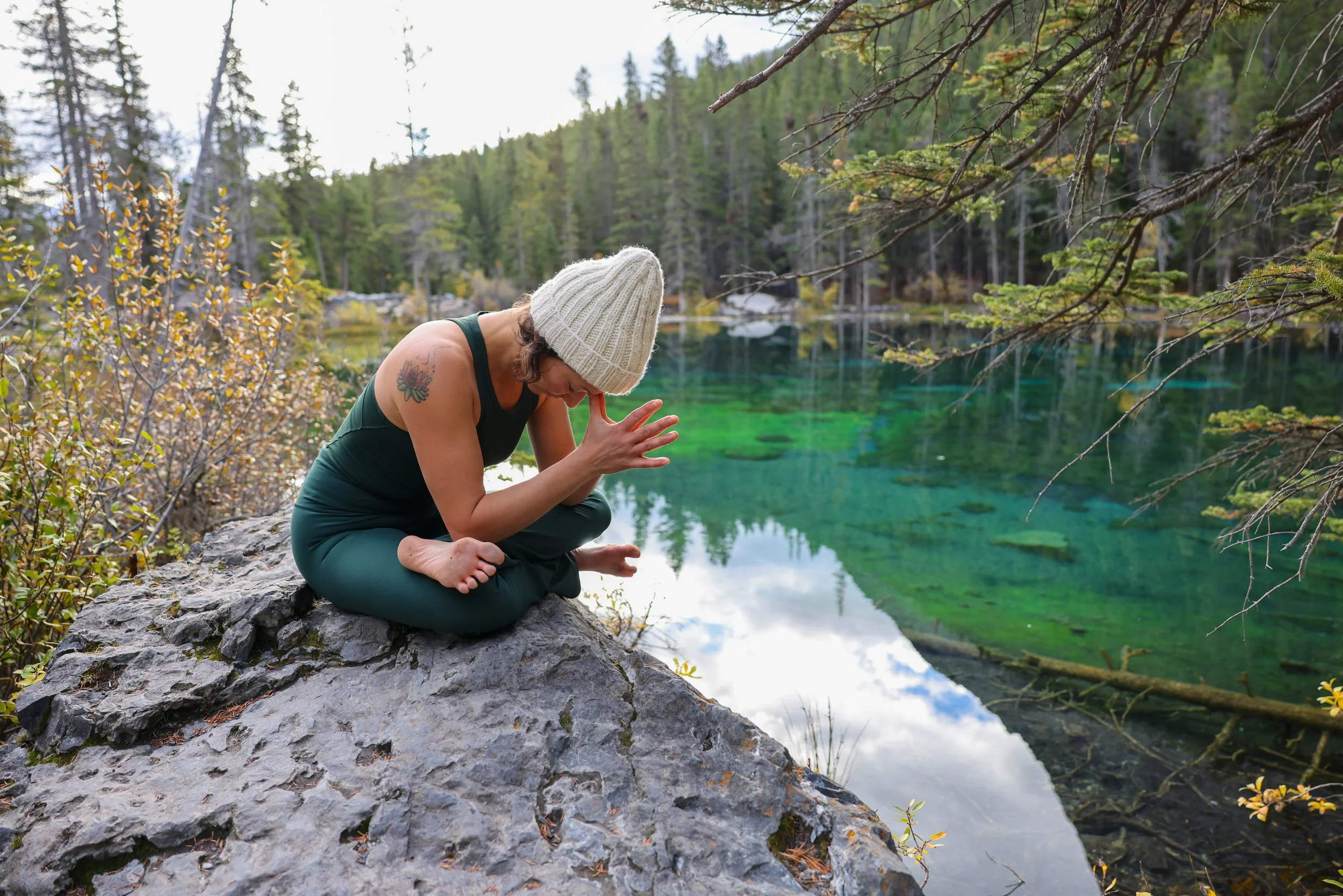Professional Development in Trauma Informed Care
50-hr Yoga Teacher Training
* Subscribe to our Youtube Channel for free practices and content *
Image: Sonnie Trotter
When.
On demand pre-recorded training content now available for purchase.
Training Modules and Times.
6-Modules available to access at your own pace, any time, when it works for you for 1 year.
Over 100 pages of downloadable content!
Each module builds on content in Trauma Informed Mindfulness, Yoga, Tensegrity, Ethics, and Land-based Inquiry.
“Highly recommend this training! These facilitators are 10/10 and have sooo much to share! The way I facilitate movement experiences has forever changed for the better. I love to be more aware of how my actions and words can affect those around me. If you’re thinking about it... I say do it!”
“The ‘Trauma Informed Practice’ experience was transformational through its richness in content and thoughtful delivery. The monthly workshops were guided by skilled facilitators who each offered a richness stemming from the depth of their unique areas of expertise. The experience was astonishing! The shared learnings created extraordinary connections and community by mirroring the tools and dynamic processes being offered. I am forever blessed as I continue in my life journey carrying new understandings, tools and relationships.”
Investment & Registration.
Investment:
$2600 $675 CAD - Supporter
$2400 $600 CAD - Sustainer
$2200 $525 CAD - Community
Registration:
To register, please follow this link to
Trauma Informed Practice: on and off the mat
located on the Offering Tree platform where the course can be accessed.
You will notice we offer a self-determined way to invest in the training based on your access to financial and social resources. All participants receive the same access training material and content.
Please choose the self-determined amount to register with your payment when you have accessed the Offering Tree platform.
If you have any questions please scroll down to the FAQ section, reach out to tiponandoffthemat@gmail.com, or subscribe to the newsletter.
Where.
Pre-recorded content available anytime in your home, office, on the road!
Statement of Training Intent.
Develop skills and integrate a trauma informed lens to support people to reclaim a sense of safety within their body.
Support people to reclaim a sense of safety within their body
Land based connection for personal and collective healing
Learn how trauma impacts the nervous system
Mindful movement for optimal expression of health
Reduce harm, foster collective care, and work towards social justice
This requires a broader and somatically grounded conversation - engage with practices that support personal, interpersonal and collective healing.
***This training includes continuing education credits with Yoga Alliance.
“The ‘Trauma Informed Practice: On and Off the Mat’ course is the most valuable investment I’ve made to date that benefit overlapping communities, including people participating in yoga sessions, friends and family, and my own personal growth. I found the amount of time dedicated to this course to be reasonable and accommodating. The knowledge and experience that Nicola, Lydia, and Sarah have, and the way they shared that knowledge was accessible and with great compassion. I am looking forward to continuing my education and growth in future offerings.”
Contact Us.
Please reach out with any questions to tiponandoffthemat@gmail.com
Your Facilitators.
“The time spent in this training, with these facilitators,
is a gift to yourself.”
TIP Participant
“I thank Lydia so much for providing the tensegrity series and the zoom extension in the pandemic.
I personally have moved from not really caring for the tensegrity series when first introduced to it years ago, to being VERY taken with it. The focus and depth of it has had a profound effect on my entire being.
It is truly all inclusive, as Lydia has explained, and it makes so much sense to me.
Lydia has a real knack for creating refreshing and novel sequences which address so many aspects of one’s essence.”
- Bev Hughes Rowely
“I've had the pleasure of knowing Sarah Kinsley for over a decade in multiple capacities. Sarah has assisted me on dozens of 5 day silent meditation retreats and Yin Yoga teacher trainings, acting as both co-teacher and on site therapist. I have witnessed her guiding and supporting students with a high level of skill and capacity. Sarah is incredibly compassionate, wise and warm. Her ability to embody both professionalism and humanity make her a trustworthy guide in the delicate art of integrating Psyche and Spirit.
Sarah is a dedicated practitioner and life long learner, an eternal student with endless curiosity and humility. Her brilliance and expertise would be of great benefit to any training program.”
- Carly Forest
“Excellent training! A must for professionals that are in contact of trauma and its effects in their interactions with their clientele! How I approach and how I show up to do my work is now definitely and constructively impacted by what I learned from this training!” - Participant
*
“I came to the training seeking knowledge that would help me in my personal yoga practice and healing from complex trauma - I came away with so much more. It was truly as if all the lights came on in the house and I could connect to myself and choices within my body - something I realized I really did not do before, not in this kind of way. For those that are struggling with healing from complex trauma and have difficulty in 'regular' yoga classes I really encourage you to check this out.” - Participant
*
“This training was exactly what I was looking for, in regard to deepening my learning around trauma informed yoga. Nicola showed a deep and passionate awareness of the intersections of power that contribute to complex traumas that people face.” - Participant
Braided Practice Video.
* View more on our Youtube channel and subscribe to, Trauma Informed Practice On and Off the Mat, for free practices, training testimonials, and on going inquiries about trauma informed care.
Contact Us.
View more on our Youtube channel, Trauma Informed Practice On and Off the Mat and please reach out with any questions you might have to tiponandoffthemat@gmail.com.
Investment & Registration.
Investment:
$2600 $675 CAD - Supporter
$2400 $600 CAD - Sustainer
$2200 $525 CAD - Community
Registration:
To register, please follow this link to
Trauma Informed Practice: on and off the mat
located on the Offering Tree platform where the course can be accessed.
Financial Opportunities Available.
Scholarships
* If you recognize your positionality impacts access to this training, there are 2 scholarships available for 50% reduced rate from the community tier.
These places are for people who fulfil the following criteria:
Those whose positionality impacts access
Those who would not otherwise be able to afford to attend the foundational training
Those intending to bring a movement practice and trauma informed lens back to their community
Thank you so much for taking time to fill out the application! We value hearing from you and unfortunately cannot support all requests.
THANK YOU FOR CONSIDERING YOUR POSITIONALITY!
The scholarship application is now closed.
2 scholarships have been allocated at a 50% reduced rate from the community price tier for this year’s annual offering.
Please reach out with any questions about scholarships to: tiponandoffthemat@gmail.com
Frequently Asked Questions
Q. What is trauma informed yoga?
This anti-oppressive approach to healing supports recovery from individual and collective long-term trauma through movement, present moment experiences, and choice.
Q. What is tensegrity?
The Tensegrity Series is a sequence of movements done mostly in a supine position (on your back) with your legs and arms moving gently from a contained abdomen and spine. It can feel more like mindful bodywork than classical yoga forms, since there is continual movement in the sets of exercises. It is designed to break down adhesions, rehydrate, tone, strengthen and bring more flexibility and function to the body's connective tissue system (fascia). The series sets an intelligent foundation for all yoga and movement practices, and is a full practice in and of itself. It is accessible to everyone.
“Lydia was the first teacher to help me connect the dots between mega flexibility and over activation within my nervous system. I took some classes with her on the tensegrity series and the practice felt like a tune up and a warm hug: grounding, insulating, and nourishing. Lydia's knowledge about anatomy and her insights into ways we can experientially deepen into our body through curiosity and listening was super helpful - it led me to a stronger awareness of my joint space and connected me more clearly to some of the "noise" my body was producing in motion. One of the things I value most about this practice is how it highlights the relationship between ease of movement, strength, and tensional balance in the body in a way that benefits my whole posture practice as well as other disciplines of movement and physical activity that I take.”
Q. What are mindfulness-based practices?
Dr. Jon-Kabat-Zinn (2003), founder of Mindfulness-based Stress Reduction (MBSR), describes mindfulness as “…the awareness that emerges through paying attention on purpose, in the present moment, and non-judgmentally to the unfolding of experience moment by moment.”
Mindfulness is an ontology (a way of being) that can be established by all humans. Throughout time and space, cultures have developed skills and techniques to become more awake and aware of their internal environment (thoughts, emotions and body sensations) and their external environment (known through the senses) and the connection between the two. This may be referred to as meta-awareness: the ability to notice what we notice while being cognizant of the ever changing nature of reality.
Mindfulness-based practices (MBP) are the specific practices used to cultivate this skill within us to be aware. Formal practices include: breath meditations, body scans, loving-kindness/compassion meditations, and mindful movements. Informal practices include being mindful (aware) of doing everyday things; for example, washing the dishes, biking to work or engaging in conversation. While practicing MBPs one is invited to adopt an attitude of curiosity, non-abandoning, and non-interfering to what is being noticed in the present moment as best as possible while offering ourselves, other beings, and the planet kindness and compassion (Forest, 2017).
Q. What credentials will I gain in this 50-hr training?
50-hr Continuing Education Hours with Yoga Alliance.
Q. What will I be prepared to teach at the end of this training?
The integration of a trauma informed lens into yoga, movement practices and diverse contexts.
Applied skills for practicing and guiding mindfulness-based practices.
An understanding of the tensegrity series for personal practice and basic skills for facilitating the series from a trauma informed lens.
Q. Will I be able to teach a trauma sensitive yoga class after this training?
You will be able to integrate a trauma informed lens into a yoga class (ie: Trauma Informed Yoga Class). You will not be able to teach a trauma sensitive yoga class due to the specific protocols required and access with additional training.
Q. Will I be a certified Tensegrity Instructor?
You will be able to integrate tensegrity movement into your classes after this training, however this is not a tensegrity certification process.
Q. Will I be certified to teach Mindfulness-based Practices?
You will be able to integrate mindfulness-based practices with a trauma informed lens into your professional context. This is not a regulated field with a regulatory body, you are encouraged to remain within your scope of practice.
Q. What objectives will be fulfilled by the end of this training?
Land-based connection
Social justice framework
Nervous system education
Understanding of oscillating movement to support releasing of fascial adhesions
Q. What are the prerequisites to take this training?
A 200-hr Yoga Teacher Certification is suggested, or a regular yoga home or studio practice over a duration of time.
Q. Do I need insurance once this training has been completed?
If you are a certified yoga teacher, you are required to have liability insurance to support implementing this practice into your offerings. This training does not certify people to teach yoga - a 200hr Yoga Teacher Training Certification is required. If you are registered with another regulatory body, please check on insurance requirements.
Q. What are the specific training dates and times?
This training is available on demand, meaning you can access the content at your own pace in alignment with your schedule. All the material is pre-recorded and documents will be available for you to access for a period of 1-yr.
Q. How much of this training will be recorded?
The entirety of the training is recorded for your learning.
Q. How might I prepare myself for the training?
Although the workshop is facilitated in a respectful and professional manner, it can be emotionally, physically, and intellectually demanding. This is not a trauma processing program, therefore we recommend creating a self-care plan for our time together during the modules or accessing your supports between sessions, as there is the possibility of being activated and dysregulated by course or discussion content.
Q. Can I cancel and get a refund at any point?
No refunds of any amount are available after the date of purchasing the course. Thank you for your understanding.






